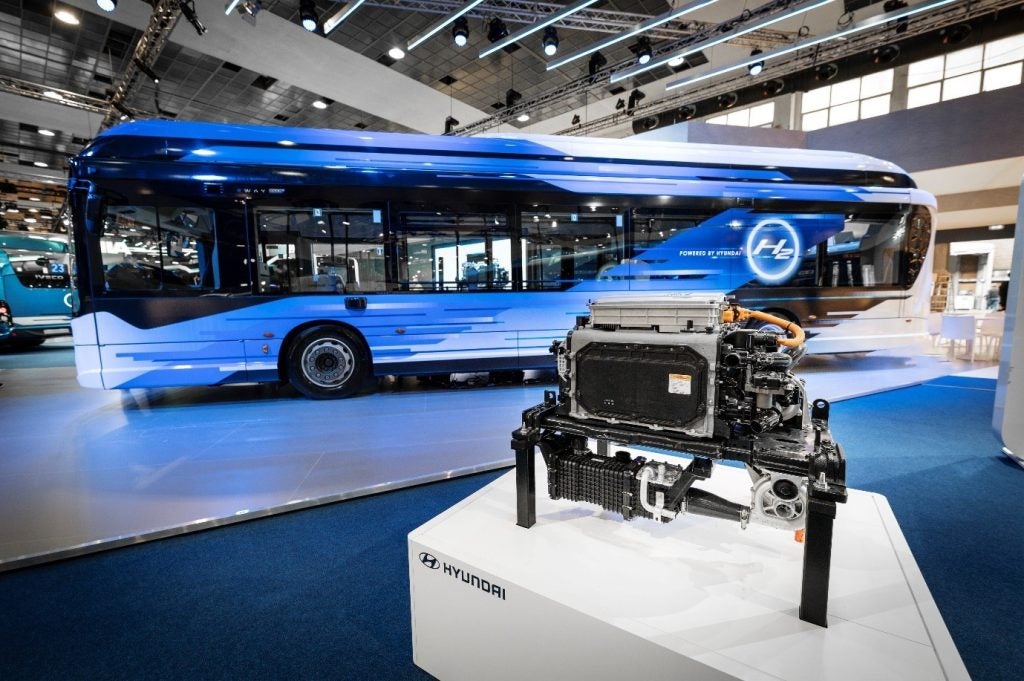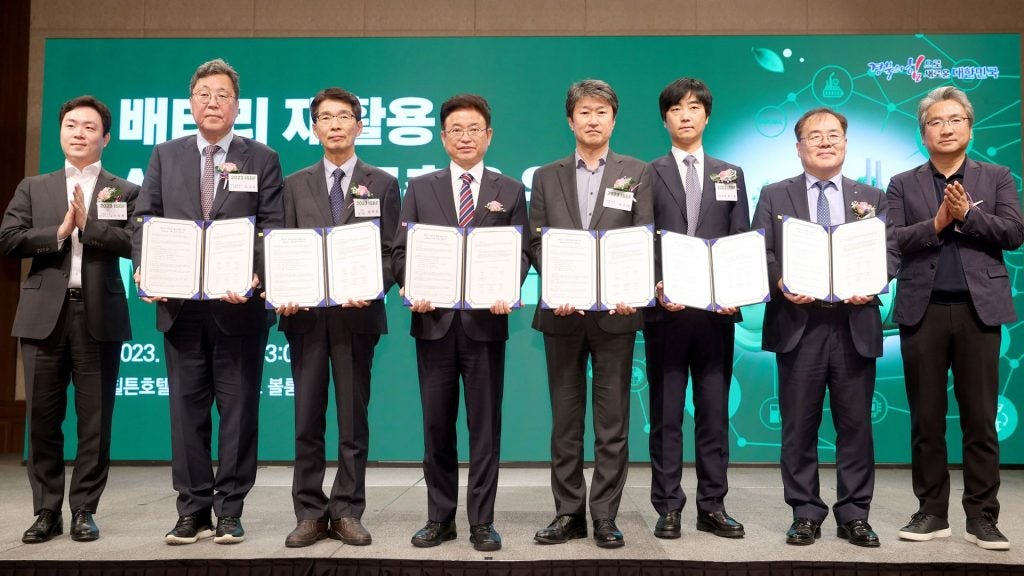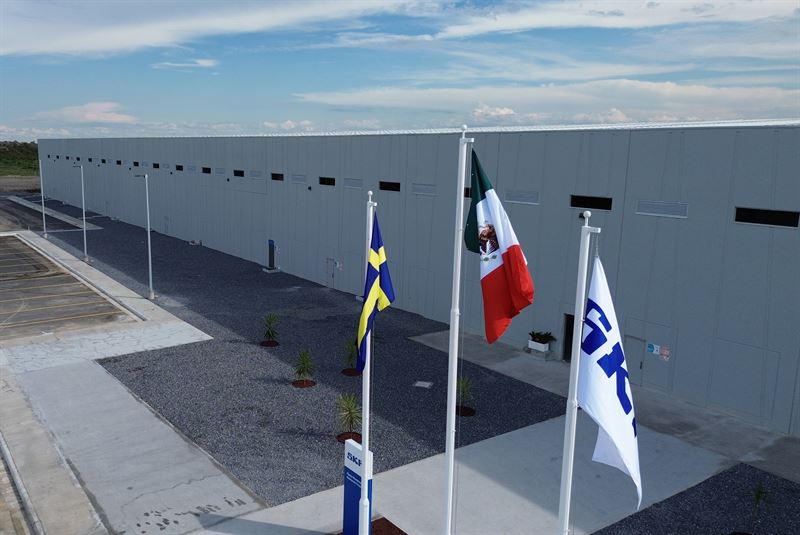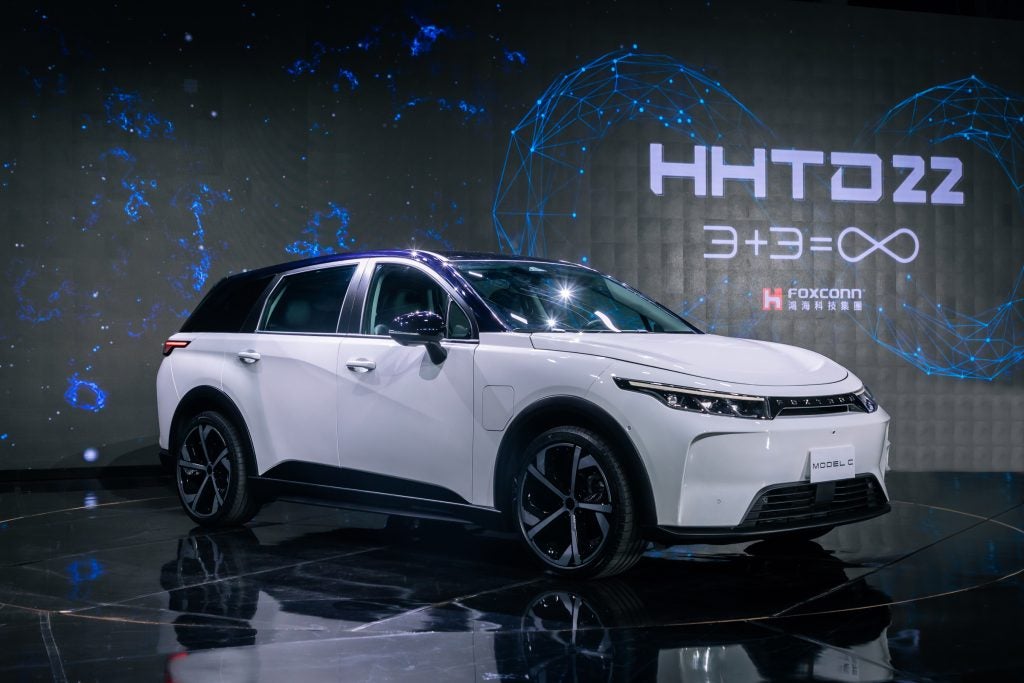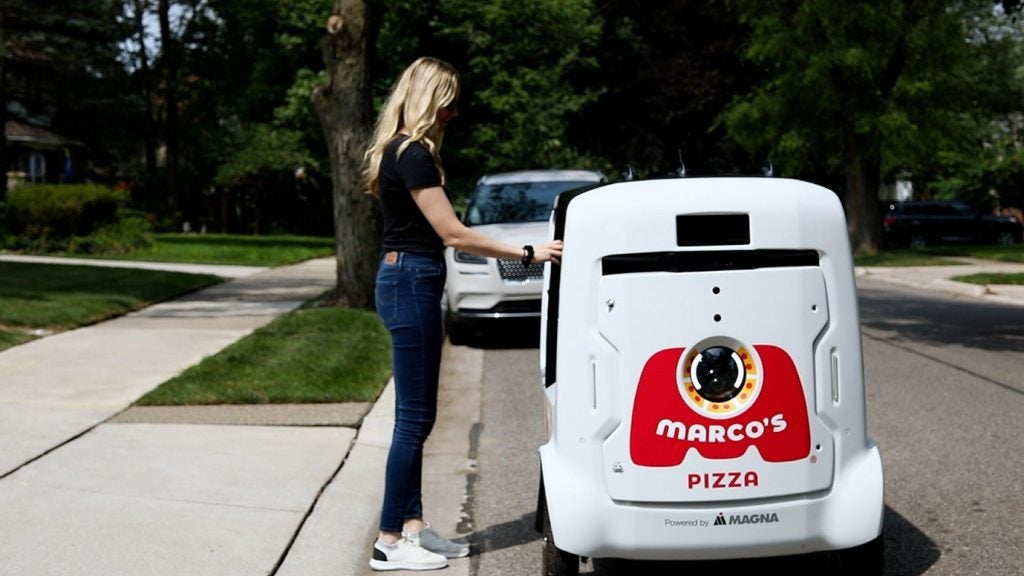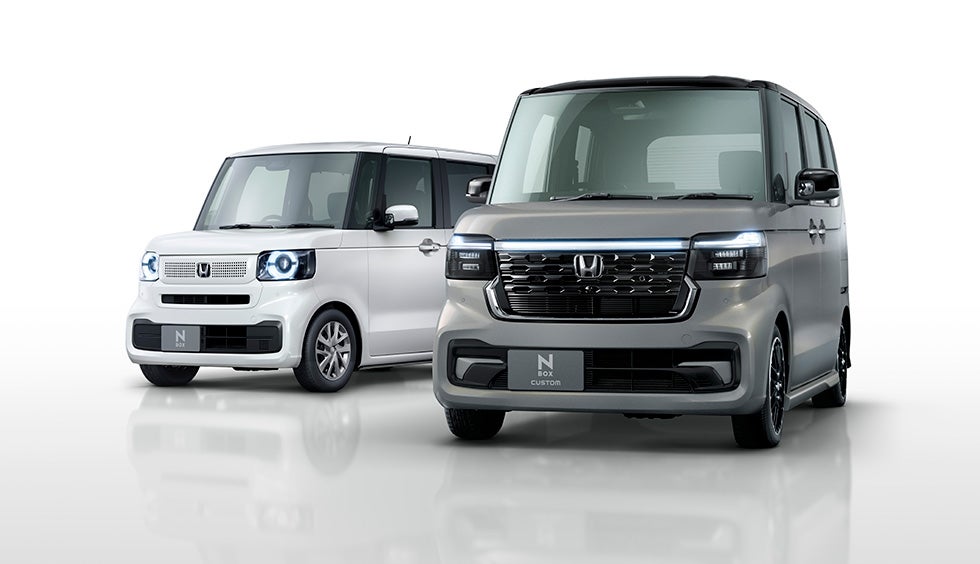Hyundai Motor Company and Italy’s Iveco Group showcased a new, jointly developed, hydrogen powered bus at BusWorld 2023, the world’s largest bus exhibition in held in Brussels, Belgium, this month.
The 12m E-Way H2 bus is powered by Hyundai’s HTWO hydrogen fuel cell system and a 310kW electric motor. The bus has four hydrogen tanks with a combined storage capacity of 7.8 kg of hydrogen and one 69kWh battery pack supplied by Iveco’s FPT Industrial unit.
It can be refuelled with both hydrogen fuel and by plug in battery recharging and has a range of 450km.
The bus is the latest product of the growing partnership between the two companies after they signed a memorandum of understanding in early 2022 to jointly develop commercial vehicle technologies and platforms and explore mutual vehicle supply opportunities. The partnership represents an opportunity for the two companies to share development costs and increase economies of scale in new technology segments.
In September 2022, the two companies displayed a seven tonne gvw Iveco Daily van powered by Hyundai’s hydrogen fuel cell at the IAA commercial vehicle exhibition in Hanover, Germany. The powertrain consisted of an FPT 140kW electric motor and a 90kW HTWO hydrogen fuel cell system.
At BusWorld 2023, the South Korean automaker said in a statement: “This is another concrete result of the mutually beneficial partnership between our two companies."
Earlier this year Hyundai launched a new hydrogen class-8 heavy duty truck in the US having already entered the European hydrogen fuel cell truck market in 2021.


